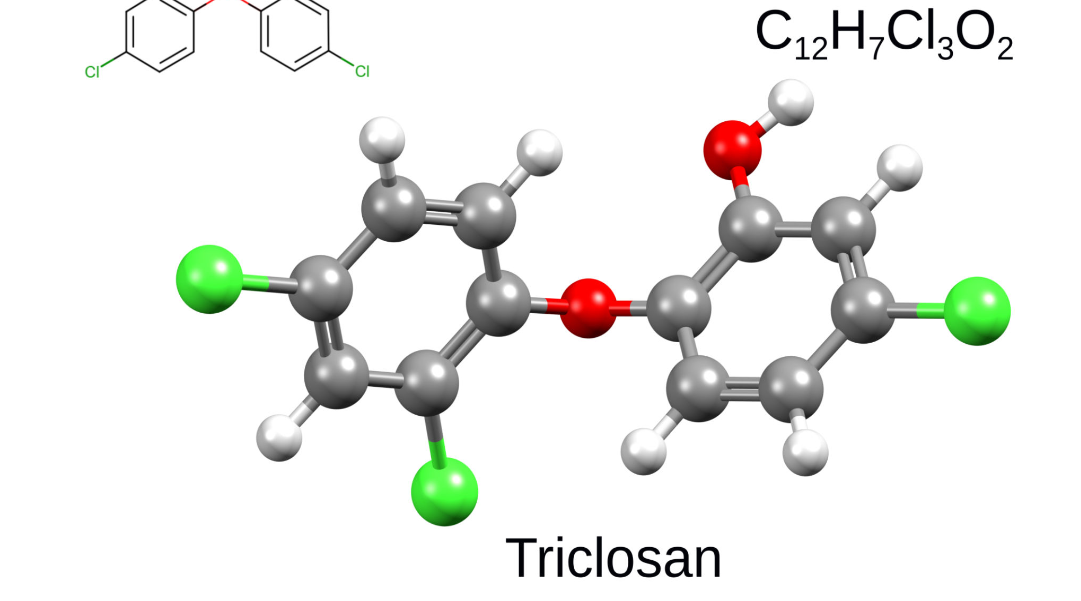Majority of manufacturers add triclosan to a variety of consumer products. As an anti-fungal and anti-bacterial agent, it helps prevent or reduce bacterial or microbial contamination. Triclosan is present in some body wash and anti-bacterial soaps, toothpastes, and cosmetic items. The United States Food and Drug Administration (FDA) regulates such products.
Over the counter drugs containing triclosan must be recorded as an ingredient on the commodity’s label in the Drug Facts Box. Cosmetics with this substance must be incorporated in the ingredient list on the merchandise tag. Some of the products with triclosan are the following:
- Liquid soap and body wash
- Face wash
- Skin purifying wipes
- Antibacterial clear soap
- Toothpaste and mouthwash
- Various cosmetics like foundation, mascara, lightening cream, moisturizing cream, lotions, lip balms, and others
- Deodorants
Is Triclosan Safe for People?
Several short-term animal research studies demonstrated that constant exposure to high dosages of this compound has been associated with decline in thyroid hormone levels. However, experts cannot establish fully the implication of said findings to human health. Other conclusions mentioned the probability that being exposed to triclosan makes bacteria and germs impervious to antibiotics. However, there is not enough evidence to measure risk levels of the agent to develop antibiotic resistance.
Triclosan in bath soaps as well as other skin care items may not turn out an issue in the short-term. On the other hand, previous research suggested that eventually, the chemical may affect women’s hormones and stimulate breast cancer cells to grow. This makes it easier for antibiotic-resistant microbes like MRSA to grow in our throat and nose.
In some published articles, the antibacterial compound was associated with different health conditions. Exposures came mostly by absorption through the mouth’s lining or skin that lead to irritation, contact dermatitis, and allergies particularly among youngsters.
Researchers have found out that triclosan is capable of interfering with the metabolism of thyroid hormones. Scientists see it as a likely disruptor of endocrine glands. Kids exposed to this element at a tender age have more chances of experiencing hypersensitivities, eczema, and asthma.
Another concern refers to triclosan’s links with dioxin, toxic chemically-related compounds believed to be carcinogenic. These pollutants have the capacity to trigger severe maladies including reduced fertility, weakened immune system, birth defects, cancer diseases, and miscarriage.
Even as products containing said agent claim to boost good health, majority of these allegations may be confusing. Triclosan does not provide additional health benefits for consumers although the risks to physical condition remain unspecified and unproven.
FDA Rules and Initiatives
In 2016, the US FDA released a policy stipulating that OTC antiseptic wash trademarks contain numerous hypothetically unsafe active antibacterial ingredients. The list included triclosan and triclocarban, common in lotions and soaps. The FDA ruled these products can no longer be sold to consumers.
- Liquid, gel, and foam hand soaps
- Bar soaps
- Body wash formulas
The declaration originated from research showing the following outcomes:
- It changes hormone regulation among animals.
- It can possibly contribute to the growth of antibiotic-resistant microorganisms.
- It may impair the immune system.
Using any product with this ingredient results in the absorption of a small amount through the person’s mouth or skin. A comprehensive study conducted in 2008 to evaluate exposure to triclosan in a typical sample of American adults and children discovered the agent’s presence in the urine of almost 75% of tested respondents.
The antibacterial compound added to toothpaste provided evidence of helping counteract gingivitis or gum inflammation. But, the FDA said there is no proof body wash products or soaps with triclosan are more effective compared to ordinary soap and water to thwart illnesses as well as the spread of diseases.
Are there Possible Benefits?
Does triclosan produce and health benefits? Aside from the ability to prevent gingivitis, the FDA has not received further evidence that triclosan carries other health advantages. In December 2017, the agency published a final ruling concerning over the counter antiseptic brands.
Manufacturers are not permitted to use triclosan together with other 23 active ingredients in these commodities without the pre-market appraisal because of inadequate data on safety and efficacy. Nevertheless, Food and Drug Administration officials continue to review the safety as well as usefulness of statistics related to triclosan and monitor available scientific sources.This is a continuing service for the welfare of consumers nationwide.


Leave a Reply